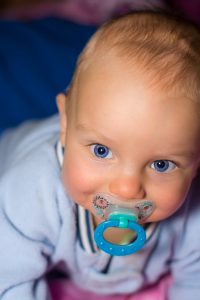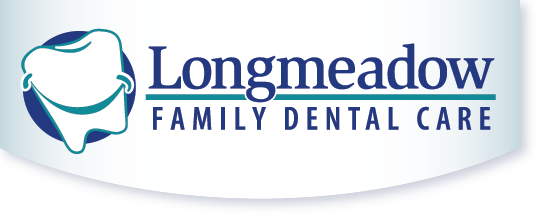Pacifiers and Your Toddler’s Teeth

Babies love sucking on pacifiers. Sucking on a pacifier or thumb is a natural, comforting gesture for young children. However, when babies repeatedly suck on a pacifier or thumb over a long period of time, it can cause dental problems. Many parents are rightly concerned that pacifier use can lead to abnormal tooth development and other oral issues. Fortunately, by following the guidelines listed below, your baby can enjoy pacifier use without affecting tooth development.
Possible side effects of prolonged pacifier use:
- Protrusive upper front teeth – overusing pacifiers can cause your child’s upper front teeth to tip forward and grow in crooked
- Improper jaw alignment
- Developing an open bite – teeth do not come together when jaw is closed
- Changes to the roof of the mouth
- Delays to the front baby teeth falling out – thus hindering the growth of temporary teeth
Benefits of pacifier use:
- Reduces the risk of Sudden Infant Death Syndrome (SIDS)
- Helps soothe fussiness
- Provides comfort, especially at naptime and bedtime
Breaking The Habit
To avoid long-term dental health problems, help your child stop using a pacifier by age 2. Some dental effects can be seen after age 2, but the greatest changes appear in children older than 4. Thus, it is crucial that your child stop sucking on a pacifier by age 4. In order to break your child’s habit, provide praise and rewards for each night that he or she goes pacifier-free. Star charts and other small prizes often entice children to stop the habit. If your child is having a hard time coping without a pacifier, you can dip the pacifier in vinegar or pierce the top of the pacifier’s nipple.
Many times, children stop sucking on a pacifier on their own before age 4. For young babies who need some extra comfort, pacifiers provide a soothing remedy. If pacifier use terminates before age 2, your baby’s tooth development should be completely normal. You can let your baby enjoy his pacifier for a nice bit of time without worrying about its potential harmful effects. Have questions about your child’s pacifier habit? Please call or make an appointment with your Longmeadow dentist today.

